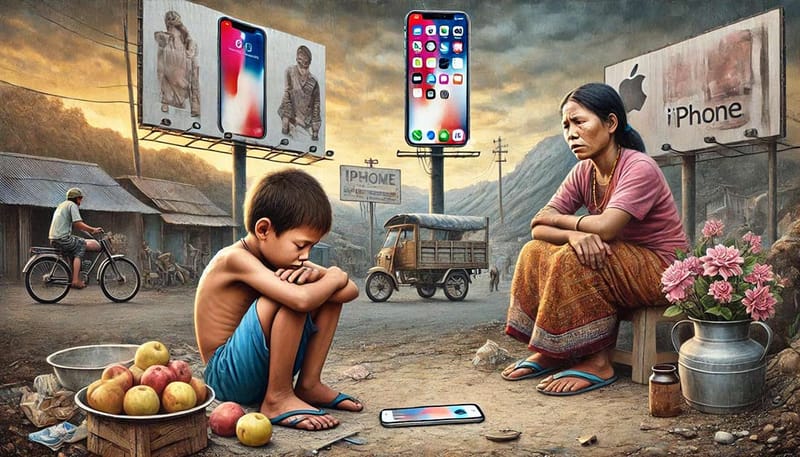The Silent Struggle: Understanding Denial in Abusive and Unloved Relationships
Explore the emotional complexities of denial in abusive and unloved relationships. Understand its impact on mental wellbeing
In the quiet moments of our lives, we often face the most challenging truths. One of these is the painful realization that we may be in denial about the state of our relationships, whether with friends, partners, or spouses. Denial is a powerful psychological defense mechanism, one that can protect us from the immediate pain of facing an uncomfortable reality but also imprison us in a cycle of suffering.
Understanding Denial in Relationships
Denial is the refusal to accept the truth or reality of a situation. It often stems from the fear of change, loss, or confrontation. In abusive or unloved relationships, denial manifests as a desperate clinging to the hope that things will get better, that the hurtful behavior is temporary, or that you are somehow to blame for the pain inflicted upon you.
This denial is not always a conscious choice. Many times, it operates on a deeper, subconscious level, driven by a need to protect oneself from the emotional upheaval that comes with acknowledging the truth. The mind may create excuses for the abuser’s behavior or downplay the severity of the situation. In friendships, this might mean overlooking consistent disrespect or manipulation, while in romantic relationships, it could involve ignoring signs of emotional or physical abuse.
The Impact on Mental Well-being
The mental toll of being in denial within an abusive or loveless relationship can be devastating. The constant internal conflict between what you feel and what you force yourself to believe creates a storm of emotions that can lead to anxiety, depression, and a deep sense of worthlessness.
- Anxiety and Fear: Living in denial means constantly walking on eggshells, fearing the moment when the facade might crack. This perpetual state of anxiety can lead to chronic stress, affecting not just your mental health but also your physical well-being.
- Depression: The emotional disconnect in abusive or unloved relationships can lead to feelings of isolation and hopelessness. Denial might cause you to suppress these emotions, but they often resurface as depression, leaving you feeling trapped and powerless.
- Erosion of Self-Worth: Constantly rationalizing harmful behavior can erode your self-esteem. You may start to believe that you deserve the mistreatment or that you are unworthy of love and respect.
- Emotional Exhaustion: The effort required to maintain denial is exhausting. It takes immense mental energy to continuously suppress your true feelings, leading to emotional burnout.
Recognizing Denial: The First Step to Healing
Acknowledging that you are in denial is the first and most crucial step towards healing. This recognition can be painful, but it is also liberating. Here are some signs that you may be in denial:
- Minimizing or Excusing Behavior: Do you find yourself making excuses for someone’s abusive actions or rationalizing why you deserve such treatment?
- Avoiding the Truth: Do you avoid conversations or thoughts that might force you to confront the reality of your relationship?
- Living in Hope, Not Reality: Are you holding onto the hope that things will change, despite clear evidence to the contrary?
- Feeling Conflicted: Do you feel an inner turmoil between what you want to believe and what you know deep down?
Steps to Overcome Denial
Overcoming denial requires courage and a willingness to face discomfort. Here’s how you can begin:
- Self-Reflection: Take time to reflect on your relationship without judgment. Writing down your feelings can help you gain clarity about your situation.
- Seek Support: Talk to a trusted friend, family member, or therapist who can offer an objective perspective. Sometimes, hearing someone else acknowledge your pain can be the validation you need to break free from denial.
- Educate Yourself: Understanding the dynamics of abuse and unhealthy relationships can help you see your situation more clearly. Knowledge empowers you to recognize patterns that you might have normalized.
- Set Boundaries: Begin to establish and enforce boundaries that protect your mental and emotional well-being. This can be a powerful step towards regaining control over your life.
- Take Action: Once you’ve recognized the truth, take steps to address the situation. This might involve confronting the person, seeking professional help, or making the difficult decision to leave the relationship.
Embracing the Journey to Healing
Breaking free from denial is a journey, not a destination. It requires patience, self-compassion, and resilience. Remember, the truth, while initially painful, is also the path to healing and self-discovery. By facing the reality of your relationship, you open the door to the possibility of true love, respect, and happiness.
In the end, you deserve a life filled with genuine connections, where you are valued and cherished for who you are. Letting go of denial is the first step towards reclaiming that life. It is an act of self-love, a declaration that you are worthy of the love and respect you se






